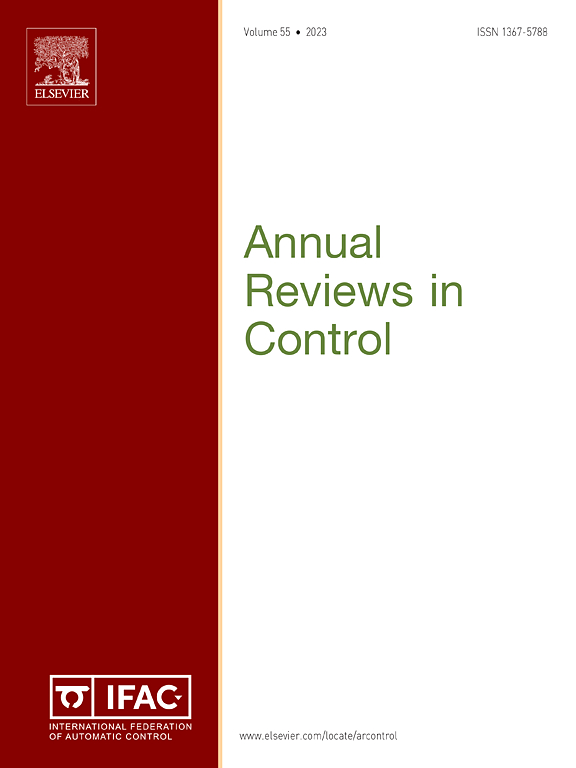Nonparametric adaptive control in native spaces: Finite-dimensional implementations, Part II
IF 10.7
2区 计算机科学
Q1 AUTOMATION & CONTROL SYSTEMS
引用次数: 0
Abstract
This two-part work presents a novel theory for model reference adaptive control (MRAC) of deterministic nonlinear ordinary differential equations (ODEs) that contain functional, nonparametric uncertainties that reside in a native space, also called a reproducing kernel Hilbert space (RKHS). As discussed in the first paper of this two-part work, the proposed framework relies on a limiting distributed parameter system (DPS). To allow implementations of this framework in finite dimensions, this paper shows how several techniques developed in parametric MRAC, such as the -modification method, the deadzone modification, adaptive error bounding methods, and projection methods, can be generalized to the proposed nonparametric setting. Some of these techniques assure uniform ultimate boundedness of the trajectory tracking error, while others guarantee its asymptotic convergence to zero. This paper introduces nonparametric metrics of performance that are cast in terms of the functional uncertainty classes in the native space. These performance metrics are relative to the best offline approximation error of the functional uncertainty. All the provided performance bounds are explicit in the dimension of the approximations of the functional uncertainty. Numerical examples show the applicability of the proposed theoretical results.
原生空间中的非参数自适应控制:有限维实施,第二部分
本论文由两部分组成,介绍了确定性非线性常微分方程(ODEs)的模型参考自适应控制(MRAC)的新理论,这些方程包含函数性、非参数性不确定性,这些不确定性位于本机空间,也称为重现核希尔伯特空间(RKHS)。正如本两部分工作的第一篇论文所讨论的,所提出的框架依赖于极限分布式参数系统 (DPS)。为了在有限维度上实现这一框架,本文展示了如何将参数 MRAC 中开发的几种技术,如 σ 修正方法、死区修正、自适应误差约束方法和投影方法,推广到所提出的非参数设置中。其中一些技术可确保轨迹跟踪误差的均匀终极约束性,而另一些则可确保其渐近收敛为零。本文介绍了非参数性能指标,这些指标是根据本机空间中的函数不确定性类确定的。这些性能指标是相对于函数不确定性的最佳离线近似误差而言的。所有提供的性能界限在功能不确定性近似维度上都是明确的。数值示例显示了所提出的理论结果的适用性。
本文章由计算机程序翻译,如有差异,请以英文原文为准。
求助全文
约1分钟内获得全文
求助全文
来源期刊

Annual Reviews in Control
工程技术-自动化与控制系统
CiteScore
19.00
自引率
2.10%
发文量
53
审稿时长
36 days
期刊介绍:
The field of Control is changing very fast now with technology-driven “societal grand challenges” and with the deployment of new digital technologies. The aim of Annual Reviews in Control is to provide comprehensive and visionary views of the field of Control, by publishing the following types of review articles:
Survey Article: Review papers on main methodologies or technical advances adding considerable technical value to the state of the art. Note that papers which purely rely on mechanistic searches and lack comprehensive analysis providing a clear contribution to the field will be rejected.
Vision Article: Cutting-edge and emerging topics with visionary perspective on the future of the field or how it will bridge multiple disciplines, and
Tutorial research Article: Fundamental guides for future studies.
 求助内容:
求助内容: 应助结果提醒方式:
应助结果提醒方式:


